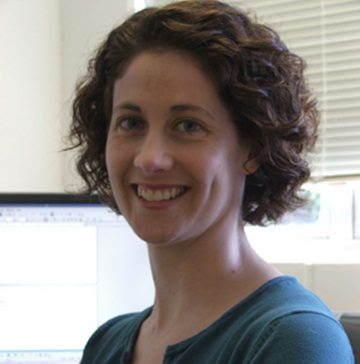
University of San Francisco professor Sami Rollins thinks better tools could be developed to help people living in off-grid homes — and she’s on a course to create those tools.
It’s one thing for a homeowner to be interested in knowing how much power their solar panels are producing when their home is tied to the grid — because whenever the solar power runs out, there’s electricity for the grid to pick up the slack. But if solar panels are the only means a homeowner has of turning on lamps or a television or running a dishwasher, knowing how much power is being produced is imperative.
Rollins, an associate professor of computer science, and a colleague from the University of Arkansas won a $400,000 grant from the National Science Foundation to study challenges that affect off-grid and renewable energy homeowners and to develop tools that can work to address those.
Rollins said the idea for the research came from a friend of a colleague describing the frantic process of running around a house and turning off lights and appliances when the charge of the batteries he uses to store solar power drop below certain levels.
Rollins said she wants to discover more about how off-grid dwellers use and manage energy “and then farther down the road, can we automate some of these processes … and utilize a system that provides them with recommendations for reducing … energy consumptions at certain times or even increasing it when sun is out and you’re generating largest amount of power for that day.”
In the first phase of the research, going on now, they’re looking for people with both on- and off-grid homes to take an online survey that will give the researchers a better understanding of how people use energy in their homes. Then they’ll work to collect information from homeowners that already have data on renewable energy production.
In the next phase, the researchers will study for a year up to 15 off-grid homes in the San Francisco Bay Area or Fayetteville, Ark., and will monitor energy use through an energy management system that includes power meter devices installed in the homes. They’ll use the data they collect to create a database and also to build a smart phone application that will let off-grid users see graphs of energy use or send alerts with recommendations for when people shouldn’t be using certain appliances, for instance.
“How specific we can get remains to be seen, but that’s kind of the goal: To be able to not only look at what’s happening right now and make recommendations to, for example, turn off this lamp, but to look at the history of how often that lamp has been used and see” whether it’s possible, based on its history of use, to turn it off at a certain time of day or night,” Rollins said.
“There are various appliances where you can schedule their use, and others where it’s not likely you can do that,” Rollins said.
Click here to sign up to take the survey about home energy use (open to both on- and off-grid properties) or participate in the year-long study.
4 Responses
Generally speaking, most Off-Gridders do not utilize a dishwasher. We use a programmable timer on our Fridge at night when were sleeping. One for 1 hr and off for 2 hrs. Lessons learned: The next Fridge will be a 12 volt model.
In my estimation, the very best ‘proven’ technology to get off the grid: geothermal
RASAR technology set up 1000’s of successful units across the western states. They got them up in running typically within a week (as opposed to years).
The temperature differential did not have to be great for the system to work.
They could power a house, or power a factory.
Recent troubles however: one of their local contractors was involved with fraud. The result was bankruptcy and a name change to Cyrq
I’m sure they have learned their lessons
What made them work was the fact they had several contractors who were the best at what they did – put them all together – and funded the projects! The projects worked!
You’ll see more from them and this technology soon!
A friend who sells and install outdoor wood boilers tells me that these boilers will be outlawed by spring next year. The only acceptable EPA approved units cost twice as much. Score one more for the ‘establishment’
Are these surveys anonymous? If not, no true off-gridder would give away their “position”. Although it seems a worthy work, most who live without “the system” do not want to render themselves vulnerable to small town politics, or worse. Suddenly rules are passed to impose permit fees, fines or fees on folks who live free. In my township an enterprising man installed an outside woodburner to heat his home. His utility bill was $8.00 last year. His neighbor who saw the unit and smelled the fresh odor of woodsmoke reported him to the police. She put up such a stink for so long and so loud, filmed him loading the unit, filmed the smoke coming from the stack, screamed to the newspapers etc. So much so that the town “fathers” put their greasy heads together and DID pass an ordinance against wood fired heat units and now the man and his family are screwed well and good. A healthy reclusiveness will be an integral part of cutting the umbilical cord to live independently from governmental/big business theft, interference and scrutiny.